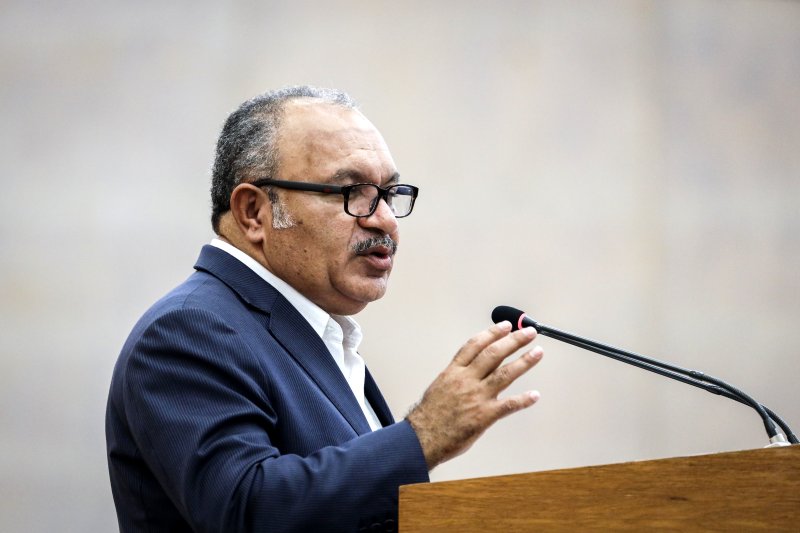Papua New Guinea's Prime Minister Peter O'Neill said Sunday "the two big giants in the room" -- the United States and China -- were unable to agree on trade issues as the Asia-Pacific Economic Cooperation summit ended without a joint statement for the first time since 1993. Photo by Mast Irham/EPA
Nov. 18 (UPI) -- The Asia-Pacific Economic Cooperation summit ended without a formal statement from leaders for the first time as trade tensions between the United States and China loomed over the meeting.
Leaders of Asia-Pacific countries left the annual summit without a consensus statement for the first time since the meetings began in 1993 as Papua New Guinea's Prime Minister Peter O'Neill, who hosted the summit, said "the two big giants in the room" -- the United States and China -- were unable to agree.
O'Neill stated the issue of World Trade Organization reform was one of the primary causes for disagreement among the leaders, as many nations have called for changes to the body and the Unites States has threatened to withdraw if it isn't treated more fairly.
He added a statement for the summit would be released later, as APEC would work to ensure "free and open trade" in the area by 2020.
A U.S. official familiar with the talks told Bloomberg that China opposed language in a pledge by the governments to fight "all" unfair trade practices, while all 20 other nations endorsed the language.
The tension between the United States and China comes as part of a trade war between the two countries that has carried on for much of the year.
U.S. Vice President Mike Pence and Chinese President Xi Jinping defended their countries' trade policies during speeches at the summit Saturday.
Pence reiterated warnings from President Donald Trump that the United States would "more than double" tariffs it placed on $250 billion in Chinese goods in response to alleged unfair trade practices by China.
"The United States, though, will not change course until China changes its ways," Pence said.
The United States also said it would join Australia in developing a naval base in Papua New Guinea as Pence said the base would "protect sovereignty and maritime rights in the Pacific islands," in an apparent reference to China's attempts to grow its influence in the region.
Xi warned that the Trump's "America First" policies put the United States in line with other protectionist nations, saying those tactics were "doomed to failure."
"Confrontation, whether in the form of a hot war, cold war or trade war, will produce no winners," he said.
Despite the looming conflict between the two countries, O'Neill added it wasn't "only the U.S. and China" who found themselves in disagreement.
"There are other members who expressed opinions," O'Neill said.
Canadian Prime Minister Justin Trudeau said the negotiations were difficult, with disagreements standing in the way of a consensus statement.
"I don't think it will come as a huge surprise that there are differing visions on particular elements in regard to trade," said Trudeau. "That prevented there from being a full consensus on the communique document."















